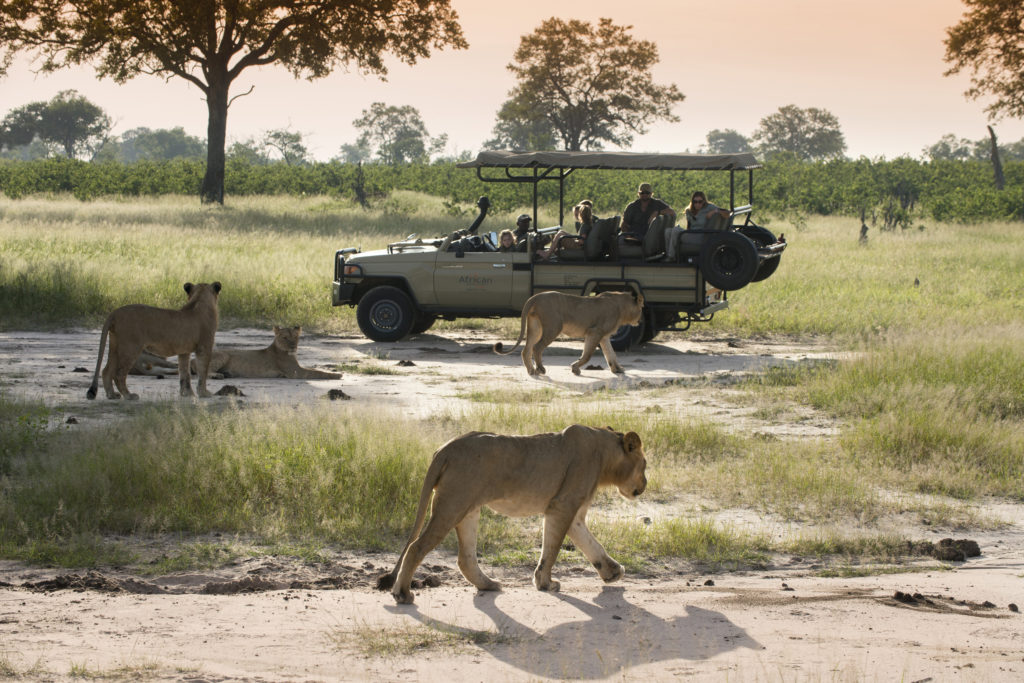

Social Changes leads to strong national identity

Few countries in the world have changed as dramatically as Botswana in recent times with the growth of a new middle class and working class, largely resident in towns and fluent in both Setswana and English. In contrast to much of Africa, this newly urbanised population broadly expresses a national identity over any would-be ‘tribal’ allegiances.
Prior to this drift to the towns and cities, families in rural areas lived in traditional compounds, usually consisting of two or three small houses with clay walls, a thatched roof and an open fireplace. In more recent times, less affluent Batswana have opted for square houses with metal roofs. In parts of the country, houses are still made of reed. Nowadays, furniture and other household items are mostly Western, yet many people continue to use traditional sleeping mats and cook food in large three-legged pots over an open fire.
Groups
Irrespective of ethnic background, the people of Botswana are known collectively as Batswana and as Motswana in the singular. The vast majority form part of the Sotho-Tswana culture. The Tswana are divided into eight groups or ‘tribes’. And, despite growing affluence and urbanisation, most Batswana still identify themselves with one of these eight groups – Batawana, Bangwato, Bakwena, Bangwaketse, Bakgatla, Batlokwa, Balete and Barolong – that are affiliated to certain parts of Botswana.
In addition, there are many smaller ethnic groups, thought to number more than 20, that do not form part of this group of eight Tswana-speaking tribes. These minority peoples often live close to the borders with Botswana’s neighbours, Zimbabwe, Namibia, Zambia and South Africa, and include such groups as the Basubiya, Batswapong, Babirwa and Bakalanga.
Few countries in the world have changed as dramatically as Botswana in recent times with the growth of a new middle class and working class, largely resident in towns and fluent in both Setswana and English. In contrast to much of Africa, this newly urbanised population broadly expresses a national identity over any would-be ‘tribal’ allegiances.
Prior to this drift to the towns and cities, families in rural areas lived in traditional compounds, usually consisting of two or three small houses with clay walls, a thatched roof and an open fireplace. In more recent times, less affluent Batswana have opted for square houses with metal roofs. In parts of the country, houses are still made of reed. Nowadays, furniture and other household items are mostly Western, yet many people continue to use traditional sleeping mats and cook food in large three-legged pots over an open fire.
Groups
Irrespective of ethnic background, the people of Botswana are known collectively as Batswana and as Motswana in the singular. The vast majority form part of the Sotho-Tswana culture. The Tswana are divided into eight groups or ‘tribes’. And, despite growing affluence and urbanisation, most Batswana still identify themselves with one of these eight groups – Batawana, Bangwato, Bakwena, Bangwaketse, Bakgatla, Batlokwa, Balete and Barolong – that are affiliated to certain parts of Botswana.
In addition, there are many smaller ethnic groups, thought to number more than 20, that do not form part of this group of eight Tswana-speaking tribes. These minority peoples often live close to the borders with Botswana’s neighbours, Zimbabwe, Namibia, Zambia and South Africa, and include such groups as the Basubiya, Batswapong, Babirwa and Bakalanga.


